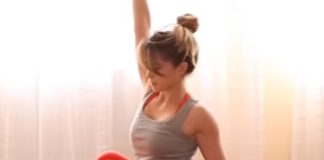Doing even simple yoga asanas brings overall physical, mental, emotional and spiritual wellbeing. Yoga has been practiced in the eastern cultures for many millennia for its potent health and other benefits. Ever since the western world discovered yoga in the late 19th century, it has gained popularity as a stress reduction practice. Research shows that life style ailments like diabetes, migraines, blood pressure etc can be better managed and sometimes cured by doing simple and targeted asanas.
Diabetes is a chronic disease that is aggravated by the type of life style we maintain. The current high stress and poor diet conditions has triggered the onset of diabetes in more people than ever before. Stress adversely impacts our endocrine system, which is comprised of all the glands that make hormones. The pancreas, which is part of both the digestive and endocrine system, is responsible for insulin production and regulating the release of insulin. Insulin stabilizes the sugar levels in the blood stream. When the pancreas begins to malfunction due to stress, age and genetic factors people begin to experience high blood sugar levels in the systems due to low insulin production, resulting in type 1 or type 2 diabetes.
There are specific yoga asanas that can help us better manage diabetes. By regular practice of the asanas it is even possible to be completely cured of the disease. These asanas when done properly, strengthen organs, improve blood circulation to the specific organs, and rejuvenate cells due to the stretching involved. Asanas bring overall relaxation to the system and alleviate stress related triggers of the condition.
These asanas below are known to bring relief and help better manage diabetes. Before doing the asanas follow these guidelines below.
1) Consult with your doctor.
2) Warm up to avoid any injuries.
3) It is important to start slow.
4) When starting new, start with holding each posture for about five seconds, or as long as is comfortable. As you progress, gradually increase the duration of each pose until you can comfortably hold asanas for up to one minute each.
Now, on to the asanas.
1) Tadasana or the Palm Tree Pose: Stand straight with your feet slightly apart. With a deep breath (inhalation), raise both your arms. Pull your arms upwards by interlocking your fingers. Next, raise your heels and balance yourself on your toes. Feel the stretch from your toes to your fingers. Try maintaining the pose for as long as you can with slow, deep breaths. Come back to your original position with a long exhalation. Repeat as many times as you are comfortable.
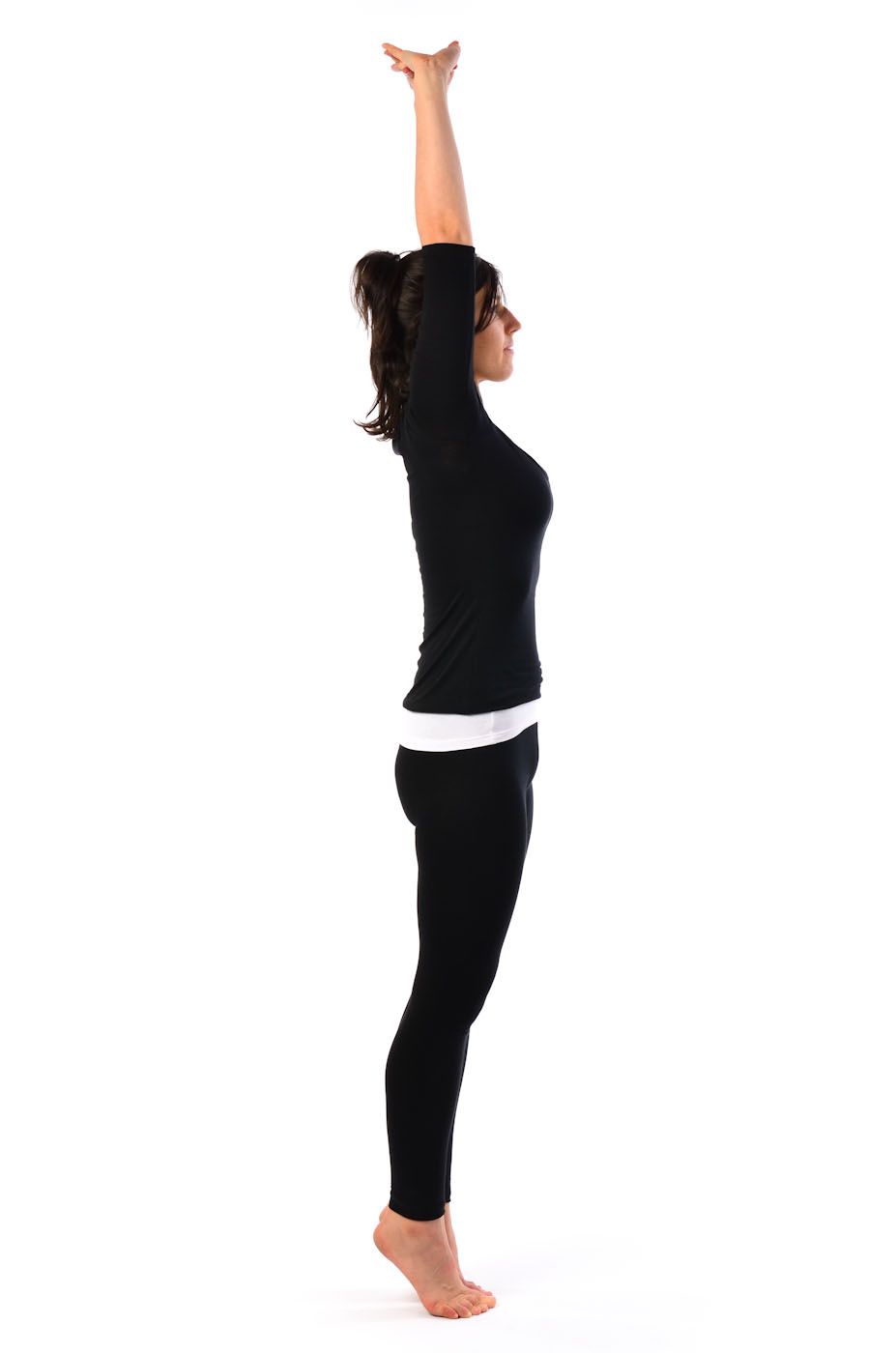
Who should avoid doing Tadasana:
Do not practice if you have a cardiac condition, heart palpitations, heartburn or diarrhoea. Women with menorrhagia (periods with abnormally heavy or prolonged bleeding) and metrorrhagia (bleeding in between regular periods) should avoid this asana.
2) Pavana Muktasana or The Wind-Free Pose: is a particularly helpful asana for strengthening pancreas, liver, spleen, abdomen and abdomen muscles.
Lie down on the back with legs together and hands by the sides of the body. By contracting the abdominal muscles, raise both your legs. Now, fold your legs and bring your knees towards the chest. Interlock your hand around the knees. Now, raise your head and let your head touch the knees. Release the asana. Come out of the asana in the reverse order. First, rest your head on the floor. Relax your hands, followed by your legs and finally the entire body.
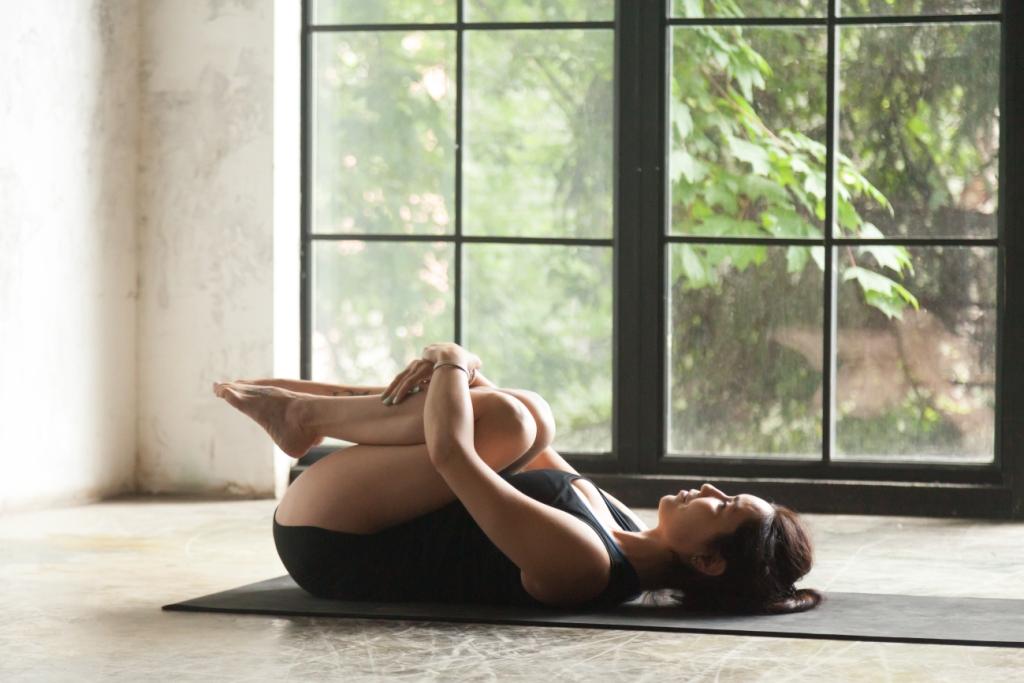
Who should avoid doing Pavana Muktasana:
Expecting mothers as it involves movements which compress the abdomen.
3) Bhujangasana or Cobra Pose: Lie on your stomach and place your forehead on the floor. You can have your feet together, or hip-width apart. Let the tops of your feet press against the floor. Keep your hands towards your side, and our elbows close to your body. Raise your head and start lifting your head and chest off the floor. Come off the floor only as much as your body allows and feel the stretch along the spine. This is the final stage of the asana. Maintain the final stage for 3 to 5 breaths. While exhaling, lower yourself back to the ground. Release the asana while relaxing the muscles of the back. Let the upper portions of abdomens, the ribs, chest and shoulders come down in that order.
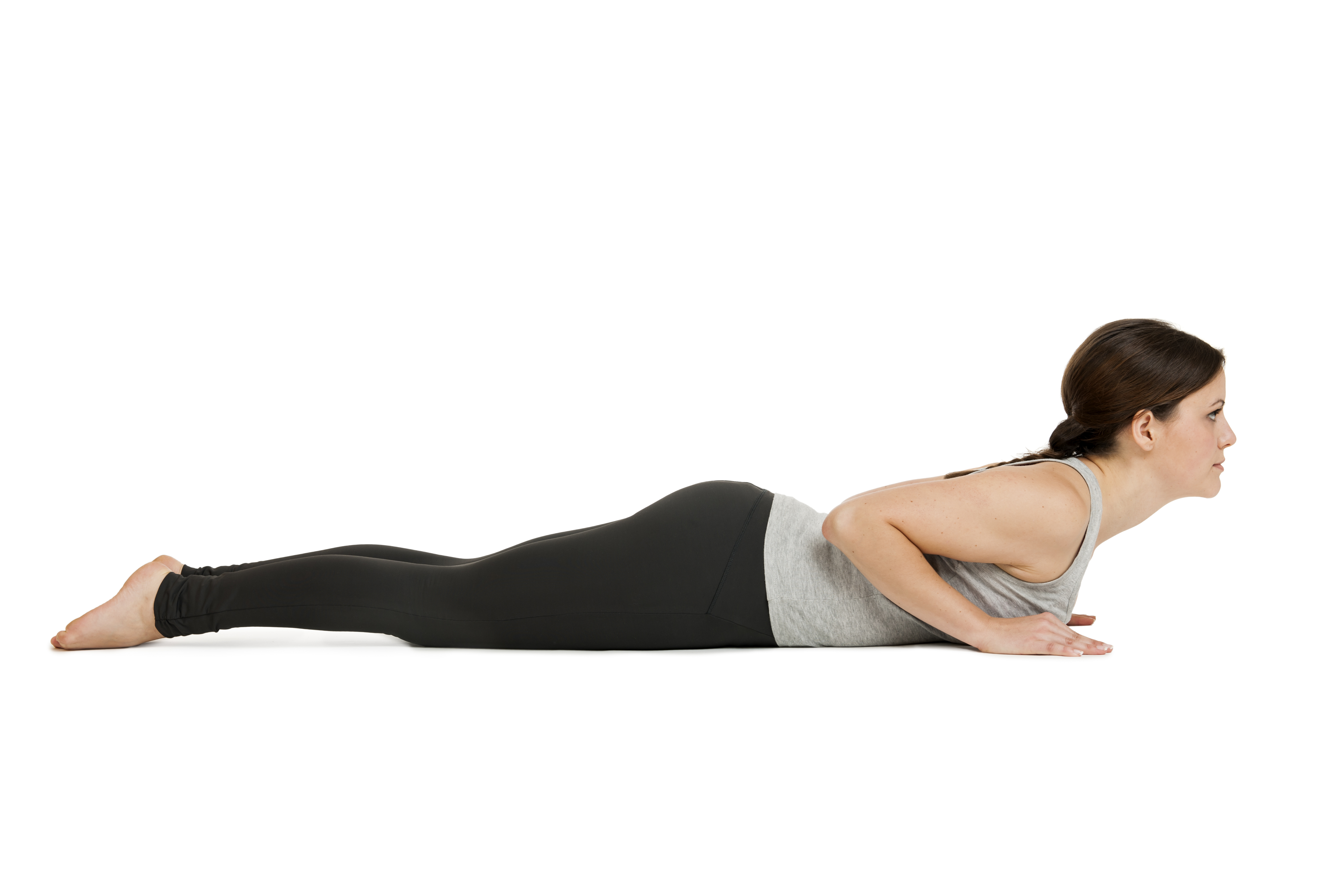
Who should avoid doing Bhujangasana:
Expecting mothers as it involves movements which compress the abdomen.
4) Vajrasana: Kneel down and gently lower your body such that your buttocks are resting on your heels and your thighs on your calf muscles. The big toes should be touching each other. Place your hands on your knees, and set your gaze forward. Keep your head, neck and spine in a straight line. Turn your attention to your breathing. Observe as you inhale and exhale. You could close your eyes to concentrate on your breathing and to calm your mind. Stay in this position for a minimum of 5 to 10 minutes.
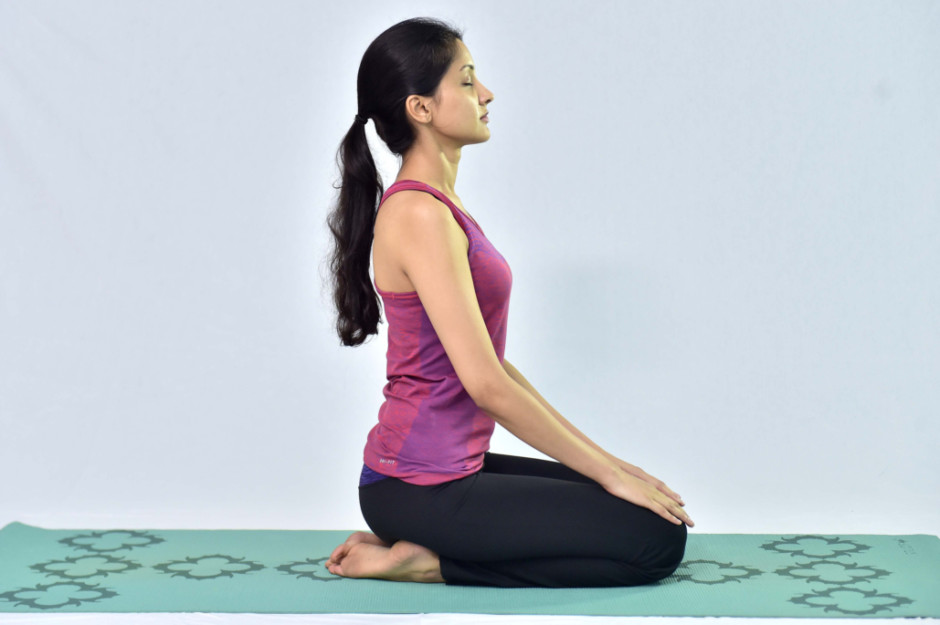
Who should avoid doing Vajrasana:
It is best to avoid this asana if you have a knee problem or have undergone surgery in your knees recently.
5) Balasana or child pose: Kneel down on the floor and touch your big toes to each other as you sit on your heels. Once you are comfortable, spread your knees hip-width apart. Inhale. Bend forward, and lay your torso between your thighs as you exhale. Stretch your arms forward and place them in front of you, such that they are in line with your knees. Since this asana is a resting pose, you can stay in the pose from anywhere between 30 seconds to a few minutes. To release the asana, breathe in and come to a seated position slowly, remove your heels from under your buttocks and come to standing position.
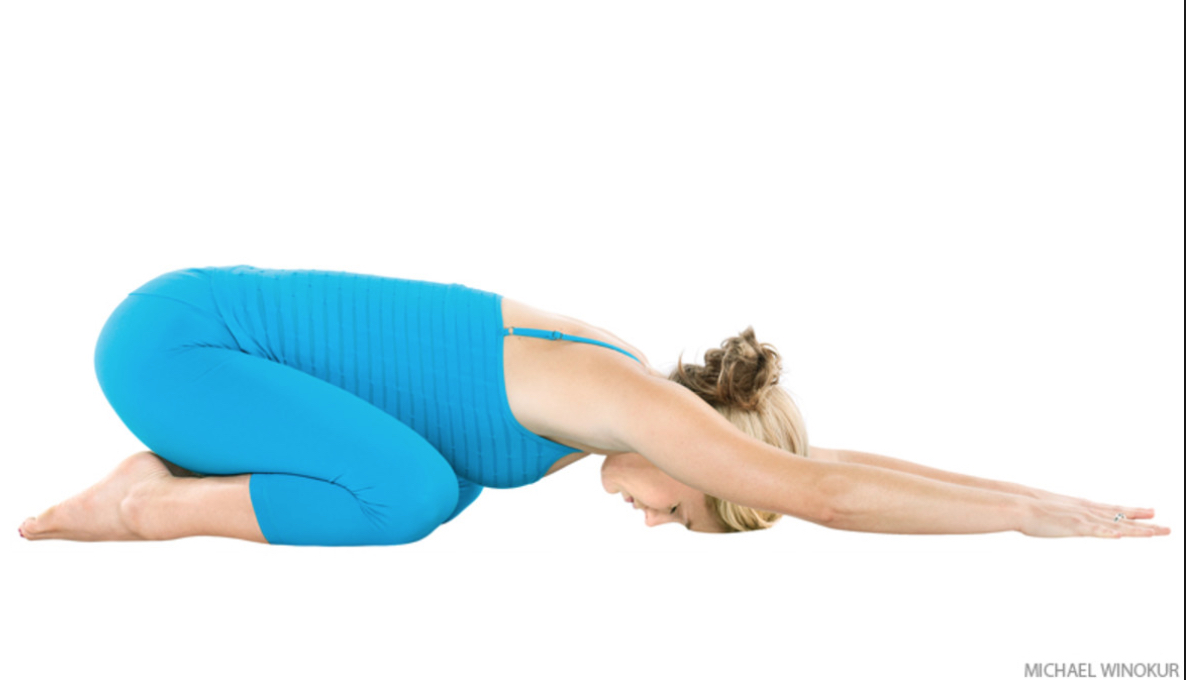
Who should avoid doing Balasana:
Those suffering from intestinal ulcers, hernia, or any other problems related to the large or small intestine should practice this pose under the guidance of a yoga instructor.
47 Most Famous Motivational Quotes of All-Time
49 Greatest Love Quotes
37 Inspirational Quotes that Will Change Your Life
































